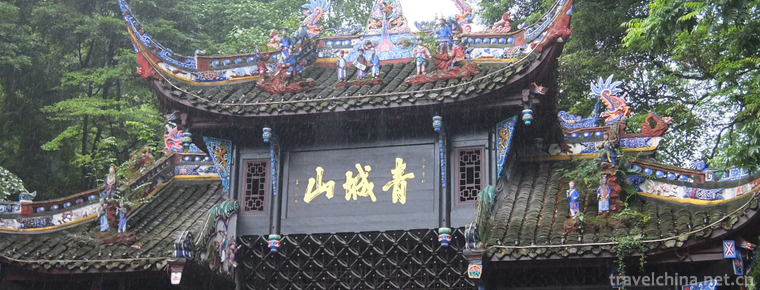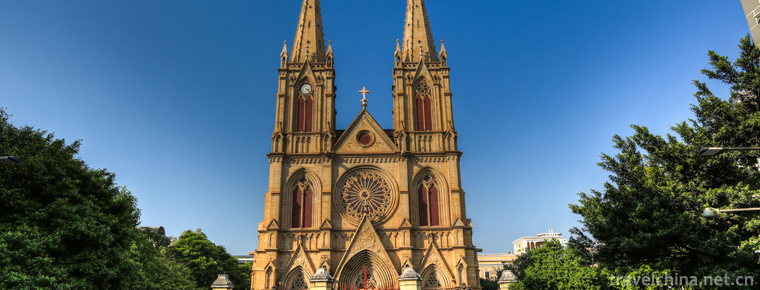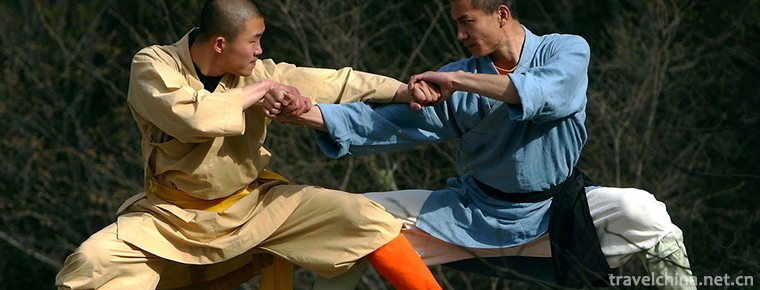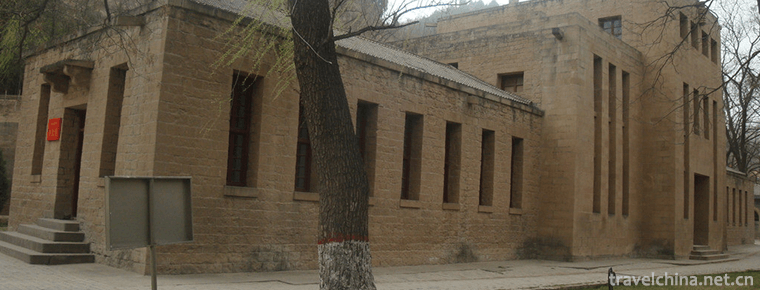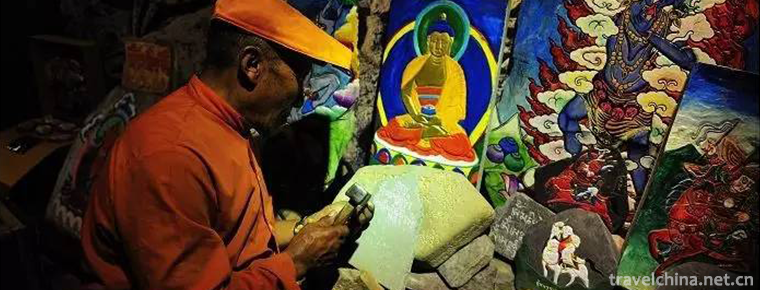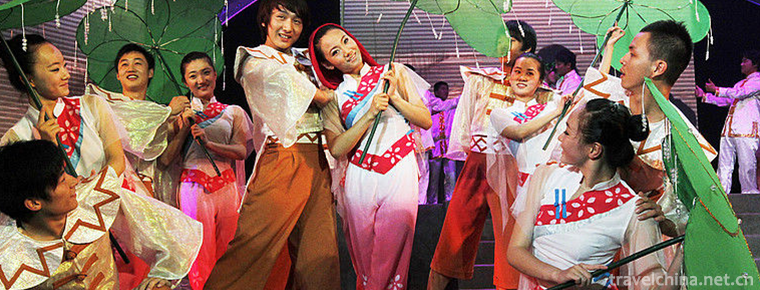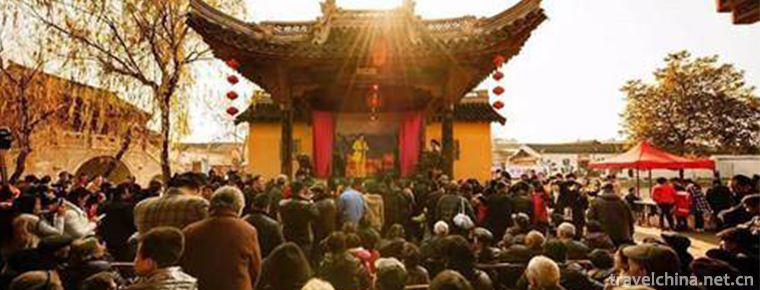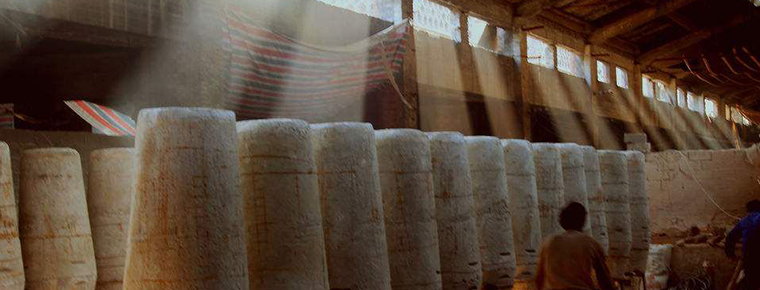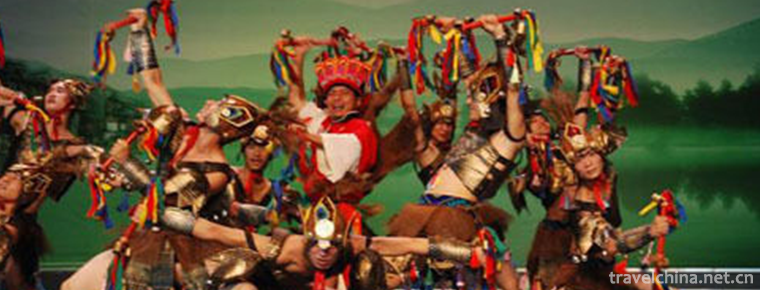Legend of Ji Gong
Legend of Ji Gong
The legend of Jigong is a kind of Chinese folk oral literature evolved from the story of Daoji, a Buddhist monk in the Southern Song Dynasty. It is centered in Tiantai County, Taizhou City, Zhejiang Province, and is distributed in Zhejiang Province, thus radiating the whole country and influencing the world. During the Six Dynasties, Sui and Tang Dynasties, many legends of Arhats and epileptic monks were circulated in Tiantai. In the early Southern Song Dynasty, Daoji was born in Tiantai and was known as "relieving epilepsy". After Dao Ji's life, many myths about him appeared on the rooftop, which people are fond of talking about. Since the Ming and Qing Dynasties, the legend of Jigong has been widely spread throughout the country. It has become a well-known Chinese folk tale, which embodies the ancient working people's yearning for a happy life and simple aesthetic taste. As the historical environment of survival has changed, the original legend of Jigong is now in an endangered state, and practical measures are urgently needed to protect it.
In 2006, the legend of Jigong was listed in the first national intangible cultural heritage list by the State Council.
Introduction of Ji Gong
Jigong (1130 - 1209), formerly known as Li Xiuyuan, a monk of the Southern Song Dynasty, was born in Yongning Village, Tiantai.
He was a learned and virtuous monk who was listed as the fiftieth ancestor of Zen and the sixth ancestor of Yangqi School. He wrote 10 volumes of "Bifeng Analects" and many poems, mainly in "Zhi of Jingci Temple" and "Records of Bifeng Analects". In Taishan Fan Xiang. Understanding medical skills has cured many difficult and complicated diseases for the people. He is good at fighting against injustice, restoring people's lives and saving people's lives. His virtues, such as helping the poor, eliminating violence and good, showing good and punishing evil, left a unique and beautiful impression in people's minds. There are also related reviews, movies, TV plays and so on.
Location
The legend of Jigong is a folk oral literature evolved from the story of Tao Ji, a Buddhist monk in the Southern Song Dynasty. It is distributed in Zhejiang Province with Tiantai as the center and radiates the whole country and influences the world.
The origin of literature
During the Six Dynasties, Sui and Tang Dynasties, many legends of Arhats and epileptic monks were circulated in Tiantai. In the early Southern Song Dynasty, Daoji was born in Tiantai and was known as "relieving epilepsy". After Dao Ji's life, many myths about him appeared on the rooftop, which people are fond of talking about. Since the Ming and Qing Dynasties, the legend of Jigong has been widely spread throughout the country and has become a well-known folk story.
The legend of Jigong in Tiantai covers the legend of Jigong's birth, the legend of Li Xiuyuan's youth, the legend of Jigong's madness, the legend of punishing evil and promoting good, the legend of helping the poor and the poor, and the legend of playing tricks on demons. The folklores and legends related to Jigong are also very rich.
Literary characteristics
As a kind of folk literature, the legend of Jigong is attached to the real historical figures. It has the primitiveness of the region, highlights the mysterious supernatural force and has the magic of the plot. In addition, the legend extensively covers all aspects of life, rich and varied in content, reflecting the joys, sorrows and joys of the working people, and has a distinct popularity. The protagonist's actions are also mixed with Zen thought and Arhat belief.
For more than 800 years, the legend of Jigong has become an inexhaustible source of literature and art, which is vividly reflected in the fields of novel, painting, sculpture, film and television. At the same time, the legend of Jigong, as a unique cultural phenomenon, is deeply engraved in the hearts of the people and will play a positive role in promoting contemporary moral education and inheriting the spirit of the Chinese nation.
Literature present situation
As the historical environment of survival has changed, the original legend of Jigong is in an endangered state, and it is urgent to take effective measures to protect it.
brief introduction
"Shoes are broken, hats are broken, gowns are broken; you laugh at me, he laughs at me, a fan is broken... "For this well-known theme song of Jigong series, people like to hum, but also like the fragile and crazy Jigong Living Buddha.
The development of Jigong legend has gone through the pregnant period before the Song Dynasty, the germination period in the early Southern Song Dynasty and the mature development period since the Ming and Qing Dynasties. It has a history of more than 800 years. Mainly distributed in Zhejiang Province, Tiantai as the center of the region, and thus radiate the whole country, affecting the world.
Historical origin
Since the Six Dynasties, Tiantai Mountain in southern Zhejiang Province has been a sacred place of Buddhism full of mystery. In The Book of Western Regions of Jin Dynasty, Fangguang Temple of Tiantai Shiqiao was called the place where 500 Arhats were manifested. In Tang Dynasty, it was called the cold mountain of three sages, the harvest and the abundant dry, and it was famous for insanity. Therefore, there were many legends of Arhats and British monks circulating in the history of Tiantai
Jigong is actually a historical figure. The earliest records can be found in Shi Jujian, an eminent monk in the Southern Song Dynasty, and his works, such as "Zanziban".
Jigong was originally named Li Xiuyuan (1130-1209), a native of Yongning Village, Tiantai. When he was a teenager, he studied in Ruixia Cave in Chicheng Mountain, north of the village, and was influenced by Buddhism and Taoism. He first visited Daoqing and Guanyin Temple, then went to Lingyin Temple in Hangzhou. He received the full precept under Huiyuan's door and was named Daoji.
"Jingci Temple Records" records: "Daoji, Zihuyin, Tiantai Li Maochun son, mother Wang, born in a dream, Shaoxing 18 December 8 also. In 18th year, the Lingyin Blind Hall fell far away. Wind fanaticism, wine and meat, Fushen well, or with groups of Hudong apes, dumps, games, temple criticism, blind clouds:'The Buddha is vast, can't you be a monk? 'So I dare not, and I call myself Ji Bun. "
It is not accidental that the Li family stepped out of a well-known Jigong Living Buddha. It is the combination of Tiantai Mountain culture with profound Buddhist Taoism, the family culture of Li Fu which integrates Confucianism, Taoism and Buddhism, and the simple and vigorous folk customs of Tiantai Mountain that breeds Jigong Living Buddha and produces the immortal Jigong culture. Jigong, first of all, is a person who is born and knows. It is Jigong's great consciousness and miraculous and romantic deeds that deify him into a living Buddha. It is important to understand the spirit essence of Jigong's road of saving the people and the world by abandoning his millions of wealth, leaving home resolutely, seeking the fundamental truth of life in the universe, comprehending his realm of "selflessness" and "seeing through everything", establishing correct life values, doing more things to serve the society, benefiting mankind, being less fettered by fame and wealth, and gaining true freedom. Reduce the worries of gains and losses.
Main Contents and Characteristics
According to the investigation, there are hundreds of Legends of Jigong existing in Tiantai area, which are based on Jigong's life experience and involve the birth legend of Jigong who was born in Luohan.
Jigong legend depends on real historical figures and has regional originality; highlights the mysterious supernatural power and the magic of plot; embodies the Zen thought and Arhat belief in history, with cultural inheritance; extensively involves all aspects of life, with diversity of content; reflects the joys, sorrows and joys of the people, with distinct popularity. As Premier Zhou Enlai said, "The people like Jigong very much because he cares about people and fights against injustice. There are many beautiful legends about Jigong circulating among the people. "
Historical development
Jigong is known as Huyin and Fangyuan. From the image point of view, he looks like a rogue, non-monk and non-Taoist, but in fact he is the sixth generation of Chan Yang Qi sect Taoist monk. Over the past 800 years, the legend of Jigong has become a vivid material of literature and art, and has been widely used in drama, painting, sculpture, film and television and other fields.
There are many plays of Yan Jigong, such as the legend of Drunken Bodhi in Qing Dynasty, the biography of Ji Gong performed by Ying Guixuan in Guangxu three years (1877), Ji Banana Drought Man performed by Tianxian Tea Garden in Guangxu six years, Ji Gong monk playing Zhixian, etc. In 1935, the Tianbu stage in Shanghai launched the Liantai opera Jigong Zhuan. Xiao Fangjin, a famous opera actor, played Jigong in harmony with Zhuangyi, lively and just right, showing the complete image of Jigong and making a sensation. You Benchang, who plays Jigong in TV plays, is full of wit, humor and ease, and is loved by the audience. Therefore, he is also known as "Living Jigong".
There is also Jigong Living Buddha in Peking Opera. Other operas and local operas also have many Jigong-themed repertoires, such as Ping Opera, Shadow Opera, Taiwanese Opera and so on. Roland's Jigong Poetry Drama, in the form of contemporary poetry script creation, perfectly integrates tradition and modern, and completely deduces the legend of Jigong.
Inheritance value
According to the investigation, there are hundreds of Jigong legends existing in Tiantai area. These legends take Jigong's life experience as the main line. They cover Jigong's life experience, childhood life, helping the poor, playing tricks and demons, etc. Among them, "Flying Peak", "Selling Dog Meat" and "Cricket Fighting" have become classics.
Since the 1980s, the social environment on which the legend of Jigong lives, spreads and develops has changed, and the original legend of Jigong once faced the danger of losing and annihilating. The local government attaches great importance to rescuing this excellent cultural heritage, so that the influence of Jigong legend continues to improve. The broadcasting of the 1986 TV series Jigong was welcomed by the broad masses of the people, especially young people, and had a great impact abroad.
For more than 800 years, the legend of Jigong has become a vivid material of literature and art, and has been widely used in the fields of novel, drama, painting, sculpture, film and television. At the same time, the legend of Jigong, as a unique cultural phenomenon, is deeply impressed in the hearts of the people and has a significant impact on the formation of the Chinese national spirit. It plays an important role in promoting moral education and enhancing the national cohesion across the Taiwan Strait.
Far-reaching impact
Jigong legend is a phenomenon of Jigong culture and a kind of folk literature, but it has the nature of "source" and "mother" in the development of Jigong culture. Its influence almost involves all aspects of social and cultural life.
A pair of influence on folk beliefs
Jigong is a historical figure. Because of his strange words and deeds, especially his help to the disadvantaged groups and restraint to the rich and unkind people, Jigong was deeply admired before and after his death. He created various legends about his birth, good deeds, support for the weak, restraining the strong and sanctifying after the silence, among which there were many deification intentionally or unintentionally. As a result, the Buddhist monk Tao Ji went to the altar. Yongning Village, the hometown of Jigong, Jifoyuan, Jigong old site of Lingyin and Jingci temples in Hangzhou, Jigong pagoda of Hupao temple and later palace pagodas and courtyards have all become places of worship and worship for all. The Song and Yuan Dynasty speaker's original edition of Qiantang Yu Yin Ji Bun Shi Yu Lu (hereinafter referred to as "Ji Bun Yu Lu"), which has a certain "history" component, collects folk legends and reflects Jigong's transformation from man to God to a certain extent. As an example, all the emperors and those who have received the benefits of Jigong must worship the "god-son" (portrait) of Jigong.
The legend created by deification reflects the people's belief in Jigong, and also attracts and nurtures more believers. In the process of repeated chanting, with the promotion of deification, Jigong has also been promoted from chivalrous monk to divine monk and from Arhat to living Buddha, and his position in Buddhist Kingdom (strictly speaking, popular Buddhism) has been increasing.
Some folk sects worship Jigong as their own God of protection. In Tongzhi and Guangxu of Qing Dynasty, Jiao, founded by Zhao Wanzhi, advocated the unification of Confucianism, Buddhism and Taoism. You Ji Gongfu left behind his instructions. The Boxer Regiment also used the phrase "Five Requests for Benefit, My Buddha" in the mantra of "Ten Requests" for divine soldiers. On June 17, 26, Guangxu released the poem of Buddhist Master Jigong's descent to the altar.
The large-scale worship of Jigong as a living Buddha was in the summer of 1917, the sixth year of the Republic of China. At that time, Wang Zhen, a famous philanthropist and Buddhist monk, was converted to Jigong. He asked the living Buddha to give himself the name of a "sense organ". He invited the followers of the political and business circles in Shanghai to form the Chinese Jisheng Association. Aiming at disaster relief and livelihood relief, the Society provides humanitarian assistance to victims of disasters in various areas by collecting money and materials and donating medicine in the form of Jigong's support to the altar. In March of the 15th year of the Republic of China, Li Jinmei, a disciple of Jigong, a governor of Tiantai County, and Chen Liren, Qiu Bingtao and Zhu Fulu, a group of followers with high cultural level, established the Tiantai Jigong in accordance with the model of the Chinese Jisheng Association and took the position of its own president. They set up Mingshan altar successively in Quantin Pavilion, Stone Wall Head and Ruixia Cave in Chicheng Mountain to relieve people's worries, prophesy their bad luck and cure their illnesses, and compiled it into the upper and lower volumes of "The Bell of the Clear Night", which was published in the 20 years of the Republic of China. At that time, there were Jigongtan in Taizhou, Zhejiang and Jiangsu provinces. In 35 years of the Republic of China, Kangji Society was established in Guangzhou. These are faith and charitable organizations.
Compiling good books about Jigong is an important part of Jigong belief. In the 24 years of the Republic of China, Jiang Zhaoding wrote the Outline of Buddha's Secret Practice in Nanping, preaching ethics and morality in the tone of Jigong, and persuading people to accumulate virtue and do good deeds. He ended with the Buddha's Sayings to Eliminate Disasters and Eliminate Erxin Datulani Sutra. Attached to this book is the propaganda of the secret truth of the Jaye Venerable Master, which calls it "specializing in the treatment of children's internal and external diseases and all difficult and miscellaneous diseases". The 27 Sacred Proverbs of Jigong Living Buddha are also circulated among the people, which are concise and sparkling with the wisdom of Buddhism and play an enlightening and guiding role in people's life. In 1992, Taiwanese Tzu En Tan declared the Five Commandments, including a comprehensive review, killing precepts, stealing precepts, lewd precepts, absurd speech precepts and alcoholic precepts, and then issued good faith.
Since the reform and opening up, Tiantai has restored Chicheng Mountain Jigong Court and Jigong Palace, the hometown of Jigong, and the people have spontaneously built the Stone Wall Head Jigong Hall and Jinchai Cemetery Jigong Temple. Jigong temples in various places, such as Dazhi Chan Temple in Dongyang, Zhejiang, Jigong Hall in Yiwu, Jigong Hall in Tzu Chi Temple in Qianshan County, Fujian, and Jigong Hall in Fayuan Temple in Fengshun, Meizhou, Guangdong, have also been renovated, and the followers are like clouds.
Second, the influence of painting and sculpture dance
Look at the painting first. The earliest Jigong Picture was the "God of Joy" worshipped by the believers in his lifetime. Later, the images of various Jigong paintings were not exactly the same. In The Revision of Buddha's Tao Shadow, the image of Zen Master of the Fiftieth Jiben Daoji, with loving eyes, big square ears, moustache and banana fan in hand. The image of Jigong in Lingyin Temple has a full face, a bowed smile, a free and vulgar expression, and a compassionate, wise and caring Buddhist face. It was written at the age of 98 in Shizhu Chan, Sichuan Province, in the late Qing Dynasty. The Encyclopedia of China, Religious Volume, serves as an illustration of the "Dao Ji" entry, thus becoming the "standard image" of Jigong. Modern Wang Zhen's Jigong paintings are few, and the image of the strange monk is on the paper. The contemporary Jigong statues are full of flowers, Fan Zeng's freehand brushwork, Wang Jintai's ink and wash, Liu Yong's cartoons, and Ma Zhe's long scrolls. Dai Yunhui depicts Jigong in light ink and sketch, which is quite vivid. The comic strip that represents Jigong's legend is the most popular among children. Ai Xiaolin compiled eight volumes of Ji Gong Zhuan, which was published by Capital Normal University in 1995. Luo Weiguo, Hu Ping, Luo Yi and Pan Zhi's "Legendary Stories of Painting" and "Biographies of Jigong" were published by Huangshan Book Society in 2004.
Jigong's earliest sculpture has no way to check. In the second year of Song Jiading, Jujian found a rock quite Xiao Jigong in Chicheng Mountain, which is called "Secretariat Rock". This is because Jigong was the Secretary monk of Jingci Temple at that time, and later generations were known as "Jigongyan" (_). This can be said to be the earliest natural statue of Jigong, but also the closest to the real image. Later, there appeared Jigong images of various materials and shapes, but they were not as shabby and free as crazy ones in folklore. The statue of Jigong, created in the Qing Dynasty by Luohan Tang of Xiyuan Temple in Suzhou, stood in the aisle with half of his face smiling and half crying, facing life in a funny way. Jigong pottery statue of Xiantong Temple in Wutai Mountains, with a smiling face and black Buddha beads hanging around the neck, with two hands holding monk shoes and broken fans, irregular sleeves, is a free and humorous and dissolute situation. Contemporary Chinese artist Gao Gongbo's "Jigong Baiwei" was filmed as a news documentary. The pottery sculptures of Chu Li's "Drunk Ji Gong" and Yu Jinshun's "Drunk Ji Gong" also have their own merits. The bamboo carving Jigong collected by You Benchang is 36.5 centimeters high. The bamboo root is a round statue of Jigong. It is full of laughter. The bottom part is a big wine urn carved from the whole bamboo, which is unique in originality. Taiwan Province has a statue of Jigong, which opened in 1967 in front of Fengshan Temple in Qishan, Kaohsiung County. It is the tallest statue of Jigong in the island, with a fan in its right hand and a wine pot in its left hand. The Jigong statue of Nanen Temple in Jiayi City is more than 5.2 meters tall and the largest in Asia. Jigong wears a pair of sunglasses to prevent the sun from drying in the west, which has become a highlight of the county's external propaganda. Nanhua Township in Tainan City has a double-sided statue of Jigong, which is similar to the three-phase statue of Jigong in Chicheng Mountain.
There is a typical example of Jigong legend entering dance. According to Jin Tao's Commentary on Zhoushan Marine Art, during the reign of Qianlong in Qing Dynasty, Fujian fishermen took "flea dance" as one of the recreational "boat dances" and spread it to Shenjiamen in Zhoushan, then to Zhoushan islands and Dinghai in Ningbo. In the early years of the Republic of China, flea dancing was combined with the local activities of "sending kitchens to worship gods" and became a kind of "kitchen dancing" of worshipping gods. After 1922, Zhang Xiaoshan, a teacher of Dinghai Private School, combined the Hangzhou folklore "Fire God of Jigong Opera" with a scene of "fighting outside the temple" and described it as a dance full of comedy atmosphere, performing at the stove and beach. At the beginning of the founding of the People's Republic of China, it was adapted from double dance to group dance, accompanied by "Zhoushan gongs and drums" and displayed on the stage in the form of stilts. The rhythm is bright, the dance steps are rough, the harmony is amusing, wins the audience bursts of laughter. In February 1955, he was awarded the Grand Prize of the First Folk Classical Music and Dance Watching Conference in Zhejiang Province, and later incorporated into "Zhejiang Folk Dance Integration".
Three Impacts on Drama Movies and Television
Let's start with drama and opera. Shortly after Jigong's death, his legendary experiences, together with those legends, were taken into operas by playwrights. In the late thirteenth century, Chen Dewu wrote the tune "Naji Monk, who used all five kinds of meat, but did not give up at all" in "Ma Tou Diao, Drunken Da Shanmen". In the Ming Dynasty, Zhang Dafu, based on Ji Bun Yulu, collected folklore and compiled the Biography of Drunken Bodhisattva. Lao Sheng played Ji Gong, which is still a reserved program of Kunqu Opera. At the end of the Qing Dynasty, with the Peking Opera troupe entering Shanghai theatre to perform, Zhao Jialou, Dabei Tower on Fire, Majiahu, Gutianshan, Shuangtou Case, Baishuihu Lake, Ciyun Guan, Bagua Furnace and Eight Devils Refining Ji Yin, which were adapted from the commentary book Jigong Zhuan, developed into the Folk Opera (Tao Junqi's Preliminary Exploration of Peking Opera repertoire, China Drama Publishing House, 1983). Lian Taiben's "Jigong Jiahua" was performed in Guangxu four years (1878). Some Peking Opera Opera Opera Opera Folk Dramas are also offered to emperors in Beijing for their appreciation. Eighteen Jigong Living Buddha edited on the new stage in Shanghai at the beginning of the Republic of China, played by Xia Yueshan, a clown, attracts people with humor and humor, and is accompanied by organ scenes and magic slides, resulting in a strong stage effect. In the 1940s, 72 copies of Ji Gong Zhuan were staged in Lao Zha Theatre, starring Xiao Fangjin, a "Sangong Lao Sheng", whose singing tone was upright and clear, and the performance was also solemn and harmonious, which was extremely prosperous for a time. Hanju opera is also innovative on the basis of inheriting the skills of Wang Zhongtian and Xiao Ma Zi. In 1921, it performed for the relief of water disasters in Hubei Province in Beijing, and was praised by experts for its "all-enchanting figure". There are Jigong Opera in local operas, including Yangju Opera, Yongju Opera and Chaozhou Opera. Chaozhou Opera also has a series of traditional operas. The Jigong LianTaiben Gezi Opera in Taiwan Province is popular with compatriots on both sides of the Taiwan Strait. Historically, there were nearly 3,000 famous monks in various biographies of eminent monks. Only a dozen of them appeared on the stage, such as Sakya and Maitreya. How hard it is for Jigong to be the only master.
Taozhen in Song Dynasty is a popular art of public rap and singing, which adopts the style of poetry and praise. By the Ming Dynasty, it was extended to the prose style of commentary and commentary. Since modern times, famous book reviewers have sprung up in succession, and they also spread the words of "learning to comment, with shelf style; learning to understand empty space, pretending to be monkeys; jibrian monks". The proverb of "Pulazhi" shows its great influence and penetration into the hearts of the people. Fan Yushan of Suzhou, taking materials from the Beijing Opera series, integrates opera movements into his self-compiled long novel Jigong and performs it vividly, known as "Huo Jigong". Yu Wenbo is known as "funny Jigong". The contemporary critic, Liaoyang Shi Kuixing, came to Zhejiang to collect anecdotes and legends about Jigong. He was fascinated by books and was known as "Huo Jigong". His "Ji Gong's poetry" is the source of "the essence of Chinese storytelling." Wang Chaotang of Hangzhou hosted a commentary on Ji Gong Zhuan, which was on the verge of being lost, and was very popular.
Jigong also entered the art of film and television. The interesting animated film Jigong Cricket Fighting won the earliest applause from children. Jigong, starring Zhou Xingchi and Zhang Manyu, is a martial arts comedy TV film filmed in Hong Kong. It uses romantic and absurd methods to express the theme of "Heaven is on earth as long as there is love for others". Taiwan's Jigong films are not allowed to be played by "comedians". In 1985, the six series Jigong, recorded by Hangzhou TV Station, took part of the outdoor scenes on the platform and was starred by You Benchang. It was humorous, interesting and profound. After broadcasting at home and abroad, the "Jigong fever" has been triggered, and "broken shoes, broken hats" are ringing in the streets and alleys all over the country. Where there is no injustice, there is no me "theme song. You Benchang also won the 4th Golden Eagle Award for Best Actor in Popular Television. In 1995, the two sides jointly filmed 20 episodes of Jigong's Travel Notes again, which further explored the connotation of Jigong's image. In February 2003, Shanghai Oriental Television came to Tiantai to shoot the short film Jigong Save the Mountain Gu. This year, the 10-minute prototype of the three-dimensional animation Jigong, Feilaifeng, was successfully produced and won the National Cg Animation Award and the International Award. In the autumn of 2005, Zhang Guoli started shooting 30 episodes of Jigong Xinzhuan at Guoqing Temple in Tiantai, which is being broadcast. There are 52 episodes of Zeng Wei's TV animation series, Xiao Jigong, a ghost. In addition, there are animated cartoons of "Ying the Clown Jigong in the Flourishing Age". According to statistics, there are at least 13 movies about Jigong on the air.
Four Impacts on Literary Creation
Since the book review and commentary changed the poetry praise (Tao Zhen) of Southern Song Dynasty to prose style, it gradually led to the emergence of chapter novels based on Jigong's legendary stories. At the beginning, Ji'an Yulu was separated and slightly added. By the middle of the Qing Dynasty, the storyteller had collected all kinds of legends and stories, expanded the scene and compiled a long chapter novel Ji Gong Zhuan with millions of words. In the early years of Guangxu, Guo Xiaoting's 240 editions of Commentary on Performing Ji Gongzhuan were published. After that, Xiaonong and Hang Yusheng continued to be 50 successions, totaling 1755 chapters and 5.8 million words. Zhejiang Ancient Books Publishing House published 12 volumes. Four publishing houses, such as Jilin Literature and History, are printed in 16 volumes. The last volume includes Ji'an Yu Lu and Mongolian Wenji Gong Zhuan. In these super-giant stories, with the display of all-round life scrolls and multi-level personality, as well as the application of the combination of ghost stories and love stories, Jigong evolved from feigning to join the WTO, eliminating violence and restraining strength, and helping the impoverished priests and chivalrous monks into a magical figure like Zhuge Liang, benevolent and righteous acts like Song Jiang and immense magic power like Sun Wukong, which embodied the beauty of all in protecting the country and protecting the people, loyalty and righteousness. The Great Living Buddha. It gives people a feeling of "tall and complete", but the original legend of Jigong is blurred. But it does have a big impact. According to the survey, "From the age of 15, 6 to 23, 4 years old, as long as they get Ji Gong Zhuan, none of them is better than to be treasured, and they can't bear to let go. This is probably the so-called "Department Store in the Department" bar!
Chen Weijun, a contemporary folk writer and artist, based on Hangzhou folklore, created 20 chapters and 250,000 words of Jigong Foreign Biography, which was published by Zhejiang Literature and Art Publishing House in 1987. Lai Yonghai, a famous Buddhist teacher, wrote Jigong Monk on the basis of Zhishu, folklore, Jigong Yulu and Full Biography of Drunken Bodhisattva, whose nature lies between biography and fiction. Later, Sun Youjun, a famous children's writer, compiled the first and second volumes of Xiaoji Gongzhuan (formerly known as The Story of the Fairy Basket and the Sword), which presented children with a novel full of children's interest in martial arts. Luo Weiguo has widely adopted folklore, absorbed book reviewing stories, and written a popular image of Yan Shuo Jigong (Shanghai Bookstore, 2000). The legendary stories of Jigong, such as Punishing Dogs by Jigong, Jigong and Xiucai, written by Sun Yaju, have been published by Zhejiang Children's Publishing House in recent years.
Five Impacts on Folk Customs
Jigong is very close to the people and has a great influence on the people. Some folk customs are linked with Jigong's name. Take food for example. When foreigners come to the rooftop to visit, they all praise the mention of "dumpling pie container". A thin skin of a ruler, wrapped in various meat vegetable dishes, placed on a pan with oil and roasted yellow, becomes a staple food and wine with good color, fragrance and taste. It is said that Jigong made an appointment for the future when he was making a Sandman in Guoqing Temple. He created the leftover vegetable roll in the pie crust ("Foot Cake Tube"). Tiantai also has Jigong wine, Jigong wine, Jigong dog noodles, Jigong eight bowls and other delicious snacks. Hangzhou Tiger Running also has "Benefit Banquet". When people go to Wuxi, they always have to taste the "Wuxi meat bones" of Moxing Sheng Meat Store in Nanmen and Yushen Meat Store in Sanfeng Bridge. That sauce red color, salty with sweet, crisp fragrance, really make people salivate. It was also made by Jigong as a gift to the owner who had repeatedly handed out cooked pork (Wuxi Meat Bone). In addition, Fu Jin's cooking jade and famous eating fan bone are all related to Jigong.
Some legends of Jigong have become the catchphrases of later generations. When the temple was rebuilt, there were many craftsmen and the food was exhausted. Jigong took out a small pocket from his arms and poured seven grains of rice into a thousand pots. In spite of everyone's laughter, he took eight loads of water and three hundred craftsmen ate a full meal. From then on, people in Hangzhou called saving rice "seven grains of rice, eight loads of water" ("seven grains of rice, eight loads of water"). Another example is the proverb "pound crab paste, read Mituo", which is generally interpreted as "words and deeds are contrary to each other". However, in connection with the above Jigong legend, it is also necessary to interpret it as "punishing evil is promoting good". Because Tiantai people compare crabs to bullies, the wicked get revenge, and people also want to read Amitabha Buddha. Also Ji Gong lied about "Niu Sheng Qilin (odd man)" and cleverly punished the landlords who were corrupt (Niu Sheng Qilin). Later generations became the catchphrase of flogging, dishonesty and rascal people. The proverb of "a family does not know a family, a monk does not know Dazhi Temple" in Dongyang implies that the family has a difficult experience. It originates from the sigh of an ancient temple found on the way back from Linan by Jigong (Jigong Bill).
Jigong's words and deeds are very personalized, and later generations use them as common sayings. There are many items in the Dictionary of Chinese Common Sayings only: "Jigong's dress is not well-dressed", "Jigong eats dog meat regardless of rules and regulations", "Jigong is a monk-does not eat vegetarian", "Jigong lives-only talks about eating but not wearing", "Jigong walks-madness", "Jigong treats illness-voluntarily comes to the door". It is concise, very vivid and unforgettable. There is another saying, "Baogong in the morning, Guangong at noon and Jigong in the evening", which satirizes the unhealthy tendencies of some cadres nowadays. "Three Gongs" are all positive images, and here only one aspect is taken as a metaphor.
The legendary Jigong was also a wise doctor who often gave medicine to the elderly, the weak and the sick. The treatment was strange and the effect was immediate. There are many medical prescriptions for later generations. For example, "Jifo Sitting Section (top and bottom)" and "Jifo Sitting Famen" are characterized by the mutual evidence and mutual participation of the two schools of Buddhism and Taoism. The Secret Prescription for the Treatment of Diseases by Saint Debao Palace in Taiwan contains hundreds of prescriptions handed down to Jigong. The Anthology of Kangji, published by Hong Kong Kangji Association, also takes the name of Jigong to absorb knowledge and technology of Chinese and Western medicine, and combines good advice with disease treatment. Dr. Yoshiyuanzhaozhi's monograph "Taoism and the Medicine of the Elderly and Longevity" also listed Jigong in "Taoism and the famous doctors of all dynasties".
TV play
New edition of Jigong:
Chi Gong Majia Edition
Title: The Legend of Jigong
Starring: Majia Cao Jun, Huang Zhixian
Zhang Moban Jigong
Title: New Biography of Jigong
Starring: Zhang Mozhang Guoli
Chen Haomin's version of Jigong
Title: Living Buddha Jigong
Starring: Chen Haomin, Yang Xue, Chen Zihan


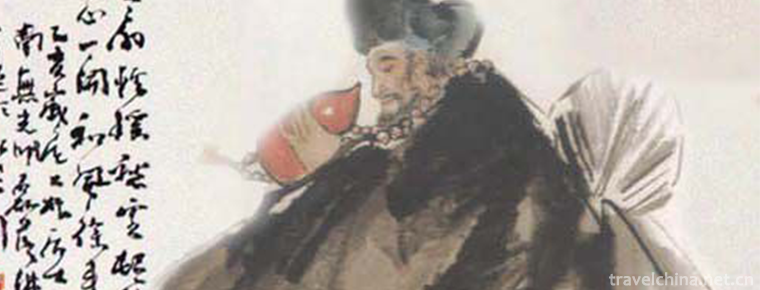
-
Shishi Sacred Heart Cathedral
Guangzhou Shishi Sacred Heart Cathedral is located in Yide Road.
Views: 149 Time 2018-10-12 -
Dianchi Lake
Dianchi, also known as Kunming lake, Kunming pool, Yunnan Nan Ze....
Views: 182 Time 2018-10-21 -
Martial Art
Wushu is a technology inherited from ancient military wars. Martial arts can strengthen the body and defend the enemy.
Views: 263 Time 2018-11-13 -
Jiangshan Peninsula Tourist Resort
Jiangshan Peninsula Tourist Resort is a provincial tourism resort development zone approved by the People's Government of Guangxi Zhuang Autonomous Region in 1994..
Views: 166 Time 2019-01-21 -
Lushan Karst Cave Group Scenic Area
Yiyuan Karst Cave Group is located in Nanlushan Town, 7 kilometers northwest of Yiyuan County. It has been proved that there are more than 100 caves in the area of 5 square kilometers around the ape-m.
Views: 163 Time 2019-02-06 -
The Old Site of Zaoyuan Revolution
Zaoyuan is located 8 kilometers northwest of Yan'an City. It is a garden-like revolutionary memorial. There are many kinds of flowers, plants and trees growing in it. The scenery is beautiful and the .
Views: 157 Time 2019-03-09 -
Tibetan Gesar Painted Stone Carvings
Tibetan Gesar painted stone carvings belong to a relic of Chinese Tibetan Gesar culture. They are mainly distributed in Seda, Shiqu and Danba counties in Ganzi Tibetan.
Views: 113 Time 2019-04-06 -
Gaoyou folk songs
The earliest source of Gaoyou folk songs can be traced back to the Neolithic Age. Gaoyou Lake and Lixia River in Gaoyou City are the traditional folk songs widely spread in their production and life..
Views: 322 Time 2019-04-30 -
Ancient Platform Building Skills
Architectural skill of ancient stage is an important traditional skill in folk architecture. In the traditional techniques of ancient stage construction, sawyers, big woodworkers, small woodworkers.
Views: 146 Time 2019-05-01 -
Construction Techniques of Jingdezhen Traditional Porcelain Kiln Workshop
Jingdezhen traditional porcelain kiln workshop building skills, Jiangxi Province Jingdezhen local traditional ceramic industry building and building skills, one of the national intangible cultural her.
Views: 86 Time 2019-05-08 -
Youyang Folk Songs
Youyang folk song is a rich and colorful folk culture created and accumulated by the Tujia, Miao and Han people in Youyang Tujia and Miao Autonomous County of Chongqing in the long practice of product.
Views: 128 Time 2019-07-14
